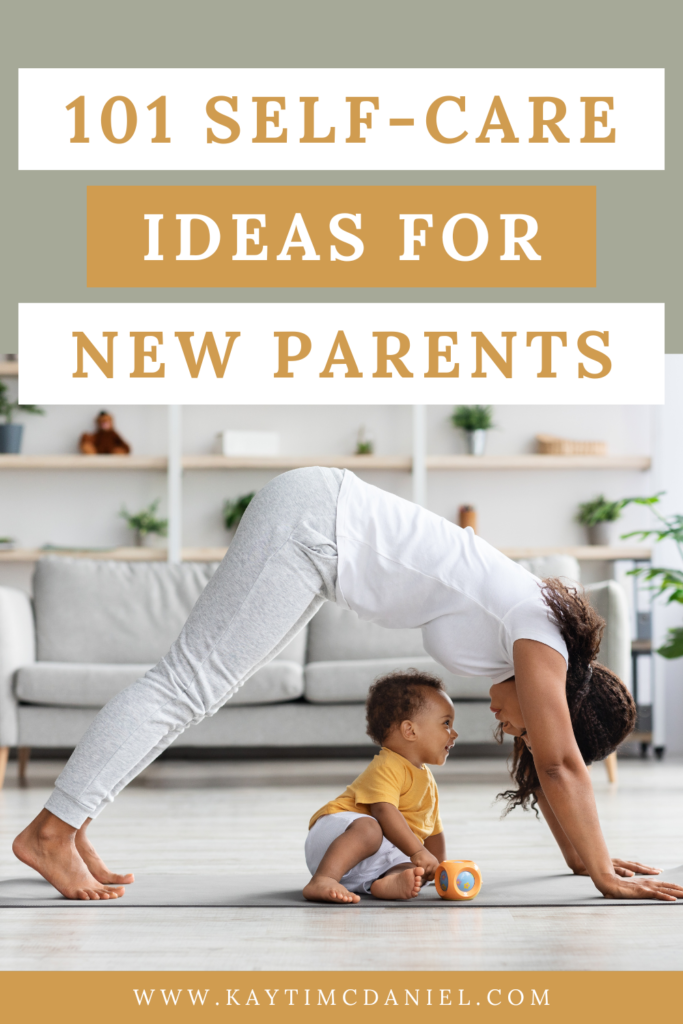
New parent looking for ideas to step up your self-care game?
I’ve got your back. In this post, I share 101 self-care ideas for new parents organized by 10 types of self-care:
- Physical Self-Care
- Emotional Self-Care
- Mental Self-Care
- Social Self-Care
- Spiritual Self-Care
- Sexual Self-Care
- Environmental Self-Care
- Professional Self-Care
- Financial Self-Care
- Recreational Self-Care
Consider this a “self-care menu” — not a “self-care to do list.” You don’t need to do everything on this list to have a strong self-care game. In fact, trying to do everything all at once will (most likely) stress you out unnecessarily. Take a look, pick a few to try on for size, and maybe be inspired to think up some strategies of your own!
Here are 101 self-care ideas for new parents:
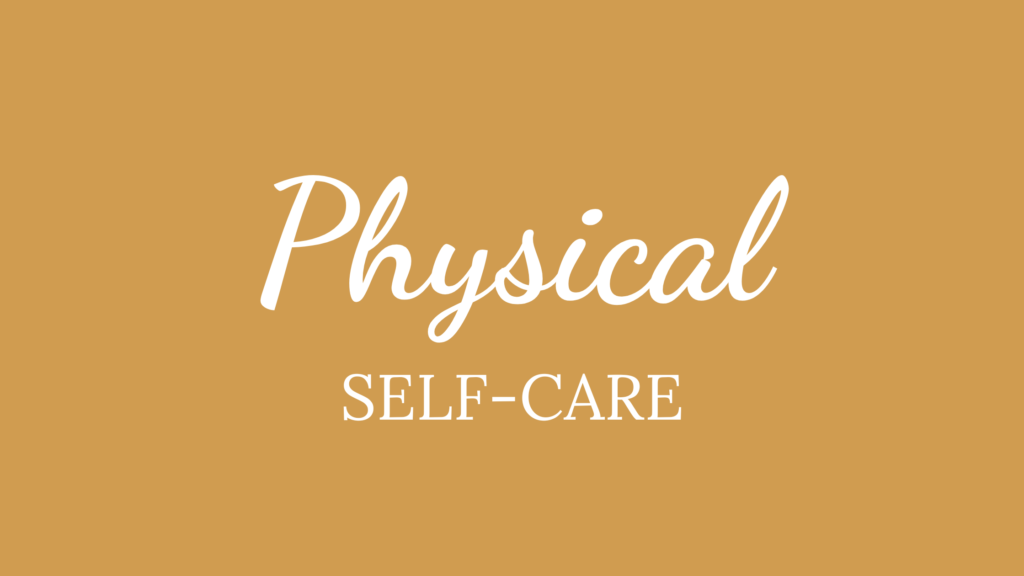
Physical Self-Care Ideas | For Nourishing, Moving, and Resting Your Body
1. Create a 5 to 10-minute routine to get “ready” in the morning (this can be as simple as washing your face, brushing your teeth/hair, and putting on fresh clothes).
2. Ask friends and/or family to help you stock your freezer with simple, healthy meals so you can spend less time cooking and more time cuddling your kiddo/resting/literally anything else.
3. Stash your favorite snacks around the house in places where you usually camp out with your baby.
4. Keep water or tea close by for you to sip on throughout the day.
5. Move your body in ways that feel good to you — even if it’s as simple as taking babe for a walk around the block, doing some gentle yoga, or having a dance party to your favorite song.
6. Schedule appointments with your team of medical professionals who can help you get/stay healthy.
7. Ask a loved one for a 20-second hug.
8. Give yourself permission to kick your feet up when your baby naps.
9. Find creative ways to share caregiving responsibilities (inc. overnight) so that you get the restorative rest you need.
10. Design a calming bedtime routine for YOU, not just for baby.
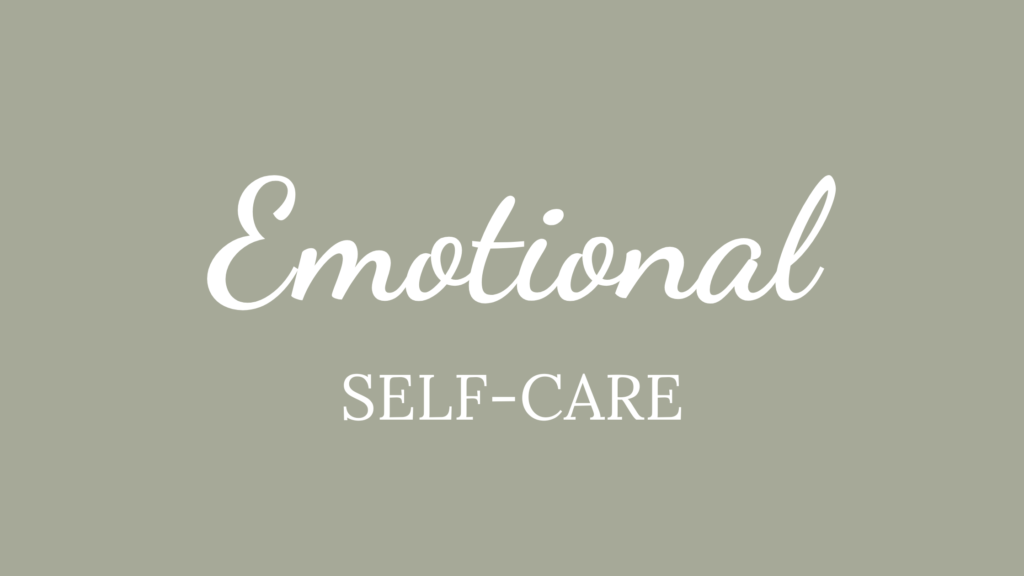
Emotional Self-Care Ideas | For Feeling, Processing, and Responding to Your Emotions
11. Take 5 minutes to meditate, journal, or sit quietly to reflect on everything you’re experiencing.
12. Give yourself permission to feel whatever you’re feeling (even the stuff you think you aren’t “supposed” to be feeling as a “good parent”).
13. Remind yourself that experiencing strong emotions isn’t always a sign that something is wrong — sometimes it’s a sign you’re doing something meaningful.
14. Get to know where your emotions show up in your body.
15. Identify the specific stuff that stresses you out (your triggers).
16. Speak to yourself the way you’d speak to your best friend (hopefully: kindly, gently, with compassion).
17. Find creative ways to express your emotions (artwork, poetry, dance, etc.).
18. Set boundaries around people, places, and activities that drain your emotional energy.
19. Make a playlist of your favorite music to connect with different emotions (joy, grief, calm, hope, etc.).
20. Go to therapy to get to know your emotions and the data they offer about your values.
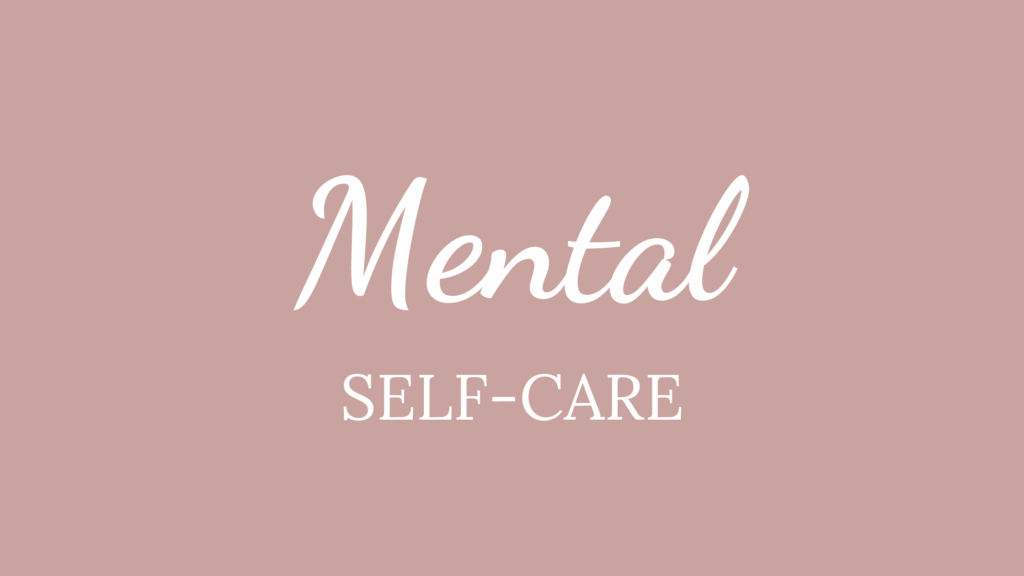
Mental Self-Care Ideas | For Stimulating, Challenging, and Resting Your Mind
21. Practice a new skill — like how to take care of a newborn!
22. Lean into a growth mindset when new-parent imposter syndrome shows up.
23. Learn something new by watching a TED talk or listening to a podcast/audiobook.
24. Be curious about stories you tell yourself about what it means to be a “good” parent.
25. “Brain dump” everything that’s on your mind onto a piece of paper to externalize your thoughts.
26. Make a to-don’t list to free up mental bandwidth for meaningful to-dos.
27. Notice your thoughts without trying to change them.
28. Silence notifications to help you engage with your tech mindfully (rather than on demand).
29. Find creative ways to simplify, organize, and share your mental load.
30. Singletask (focus your energy and attention on one thing at a time).
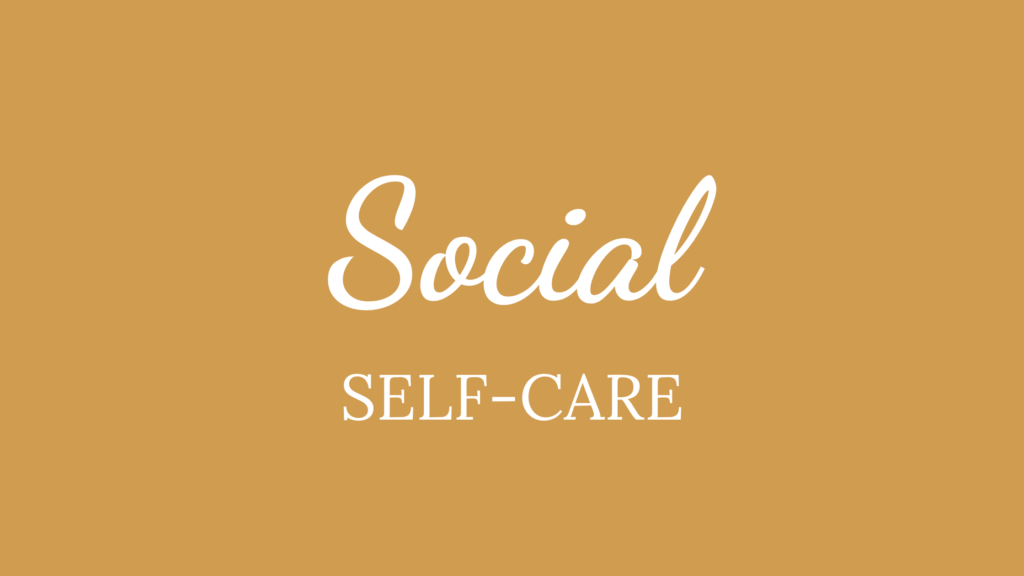
Social Self-Care Ideas | For Nurturing Healthy and Supportive Relationships
31. Adjust your expectations for how much time and energy you have to offer social relationships outside of your family right now (it’s okay if it’s less than usual — you have your hands full!).
32. Check for your enthusiastic consent before saying “yes” to any social connection or event.
33. When it feels right for you, spend focused time with others who help you to feel calm and grounded.
34. For relationships you choose to invest in, consider personal boundaries that will help you stay connected while also honoring your own needs.
35. Learn effective communication strategies to express your feelings, needs, and requests to others.
36. Develop rhythms for staying connected with important people in your life (ex: “on Friday afternoons, I FaceTime with a friend”).
37. Initiate and plan a fun experience with someone.
38. Build reciprocity in your relationships by asking for and (when you can) offering support.
39. Join a support group for new parents.
40. Invite individuals in your support system to be a part of your game plan for hard moments.
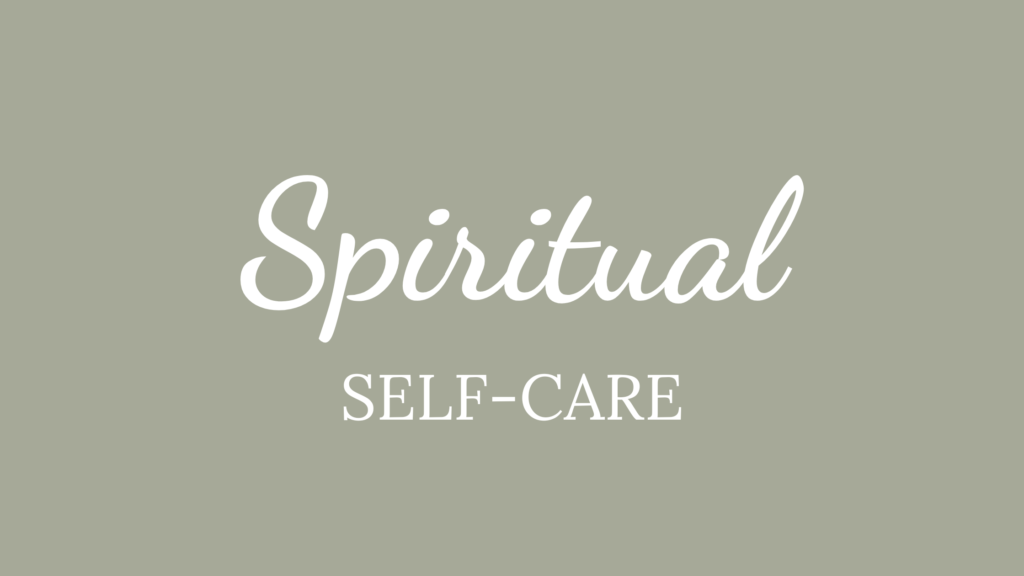
Spiritual Self-Care Ideas | For Exploring A Sense of Purpose and Meaning
41. Reflect on your personal values.
42. Set daily or weekly intentions that help focus your time and energy on what matters most to you.
43. Develop a mindfulness practice (meditation, yoga, breath work, etc.).
44. Keep a list of quotes or affirmations that are meaningful to you.
45. Read stories or memoirs about individuals that inspire you.
46. Connect with a spiritual community that feels safe, supportive, and aligned with your values.
47. Dedicate time to exploring your passions.
48. Engage politically (voting, participating in demonstrations, calling representatives) to take a stand for the kind of world you want to pass along to your children.
49. Become a conscious consumer.
50. Spend time in nature.
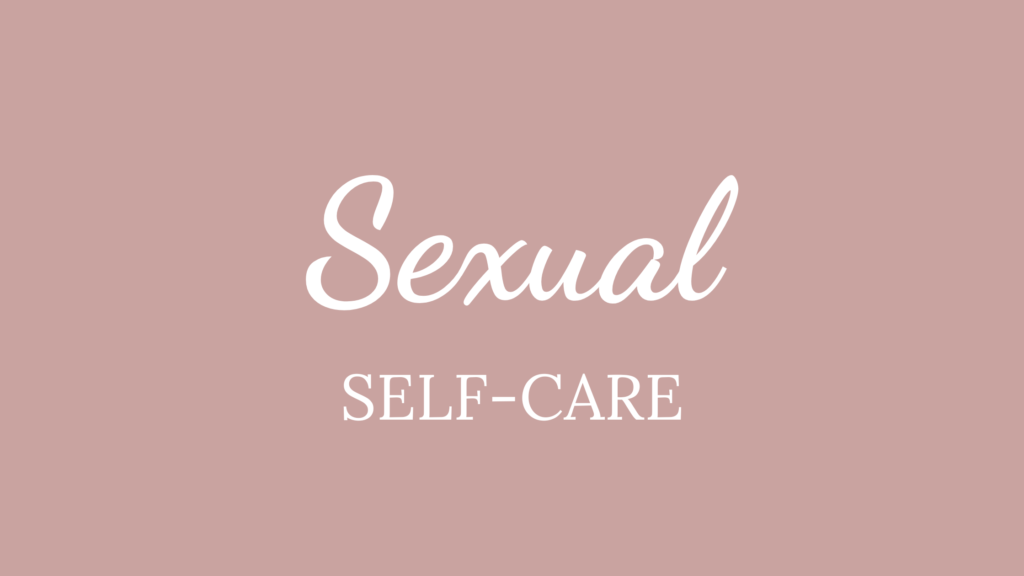
Sexual Self-Care Ideas | For Creating a Positive, Respectful Relationship With Your Sexuality
51. Prioritize your healing and recovery — the quality of your sexual health is impacted by the quality of your overall health.
52. Learn about the temporary ways that birth and postpartum adjustments (inc. stress, sleep-deprivation, changes in hormones) can impact your libido and experience of sex.
53. Be honest with yourself about your needs, desires, and preferences (and know that they’ll continue to shift over time).
54. Set your own timeline for intimacy based on what feels best for YOU (just because you’re medically cleared for sex at 6 weeks doesn’t mean you’re mentally or emotionally ready — and that’s okay).
55. Instead of judging or criticizing your body for all of its changes, try thanking your body for everything it’s doing for you (and your baby!) today.
56. Learn effective communication strategies for talking about postpartum intimacy with your partner.
57. Find creative ways to physically connect with yourself (and/or your partner) that feel good for you —even if sex is off the table for now.
58. Talk to your doctor if you experience pain during sex.
59. Learn about your options for postpartum birth control.
60. Reach out to a therapist if you’re concerned that anxiety, depression, or trauma are intensifying sexual challenges (or vice versa).
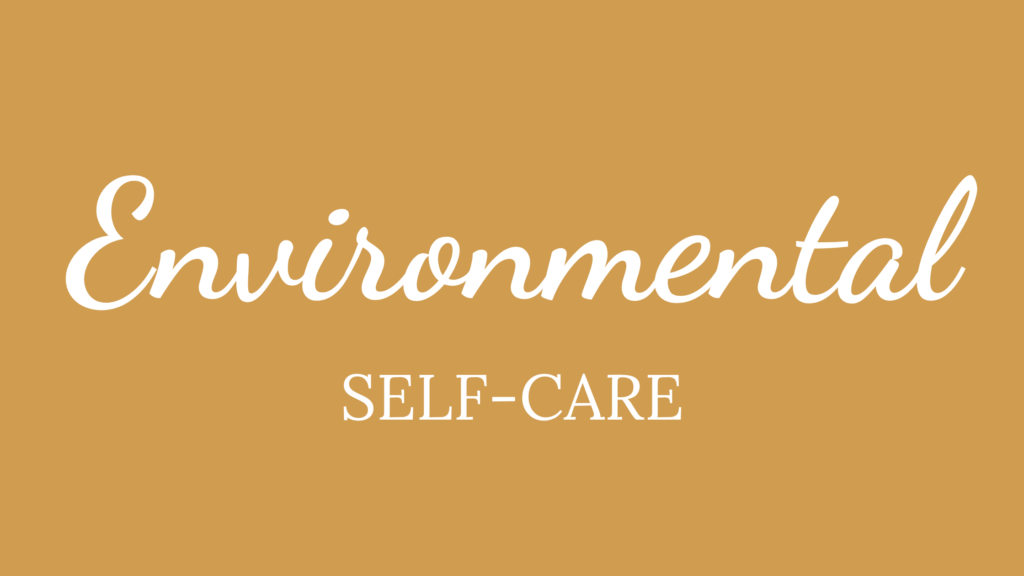
Environmental Self-Care Ideas | For Curating a Space That Supports Wellbeing
61. Personalize your space based on your family’s unique needs.
62. Designate specific spaces for specific purposes (work, rest, play, etc.).
63. Reduce physical and mental clutter by gifting, donating, or trashing any belongings that you don’t use and/or are not personally meaningful to you.
64. Organize your space to give every item a home and make it easier to find/tidy your things.
65. Develop a habit of resetting your space when you’re leaving it, so that it’s already prepped for you when you return.
66. Reflect on how you’d like to feel in a particular space (ex: joy, calm, silliness, focus), and then decorate with colors and objects that inspire that particular emotion.
67. Spend time in nature and/or bring nature indoors (like a plant, picture of nature, or fresh air from an open window).
68. Play music you enjoy.
69. Add hints of your favorite scents with tea, flowers, candles, an essential oil diffuser, or cooking/baking.
70. Surround yourself with textures (clothes, furniture, blankets, etc.) that feel comforting to you.
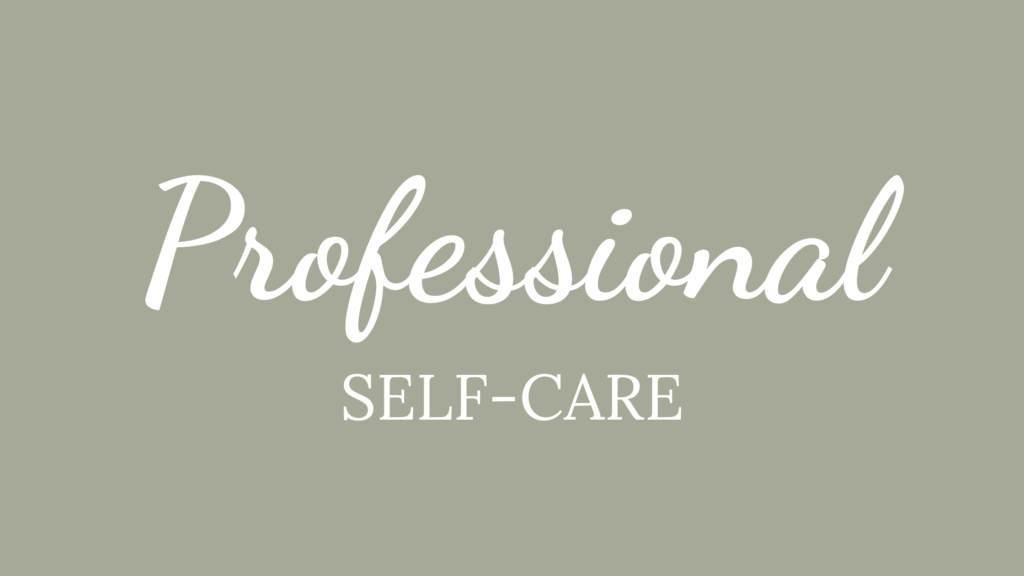
Professional Self-Care Ideas | For Growing In Your Career and Finding Work-Life Balance
71. Set and work towards career goals that excite you.
72. Take (and plan ahead for) parental leave after the birth or adoption of a new baby.
73. Request workplace flexibility (schedule, number of hours worked, work location, etc.) that would best meet your growing family’s needs.
74. Have dedicated time away from work on a daily, weekly, and seasonal basis.
75. Create a ritual to start and/or end your workday to help you transition between work time and family time.
76. Negotiate division of labor with your partner at home in order to support each other’s work and rest time.
77. Be honest about your limits when taking on new assignments.
78. Develop and maintain connection with meaningful professional relationships.
79. Make a plan to recognize, respond to, and prevent professional burnout.
80. When you’re feeling stuck or uncertain in your career, focus on one “next right thing” at a time.
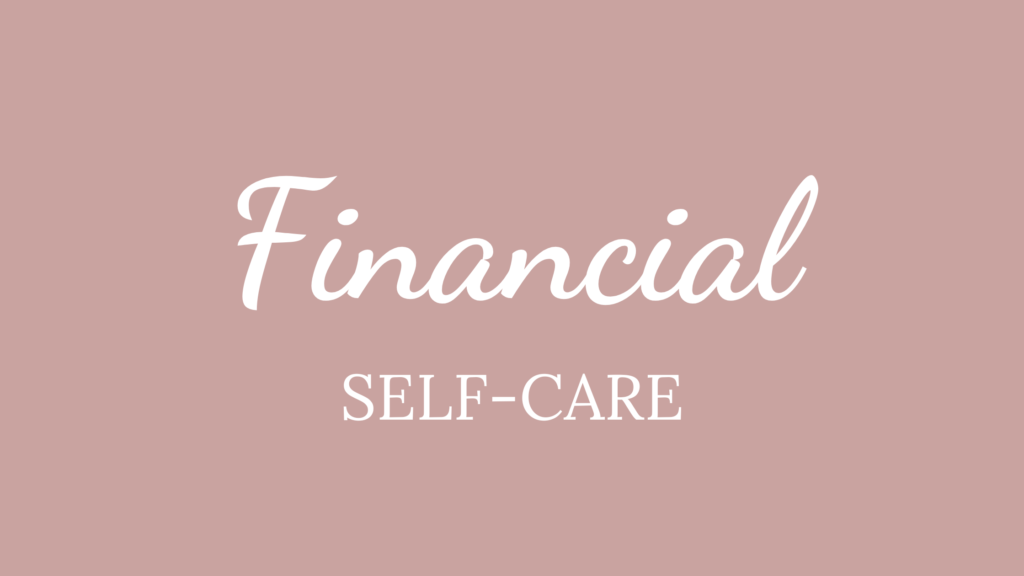
Financial Self-Care Ideas | For Developing a Healthy Relationship With Money
81. Schedule a regular, recurring time to review where your money is going.
82. Find creative ways to increase your income (ex: negotiate a raise, apply for a higher-paying position, brainstorm how you might make additional money doing something you enjoy).
83. Create a spending plan that reflects what matters most to you (basically: spend your money on purpose, not on autopilot).
84. Build an emergency fund to create a financial safety net (and peace of mind) for sudden/unexpected/necessary costs.
85. When possible, plan ahead and save for parental leave.
86. Narrow down your baby-prep shopping list by talking to trusted friends and family with little ones about what stuff was actually worth the investment (versus the stuff that was super cute, super expensive, and was only used for two weeks).
87. Embrace hand-me-downs and borrowed baby gear to lighten the financial load of your newborn.
88. Meet with a financial therapist to better understand and shift stories that are impacting your relationship with money.
89. Listen to a podcast or audiobook to learn more about personal finance.
90. Set savings goals that feel exciting and meaningful to you.
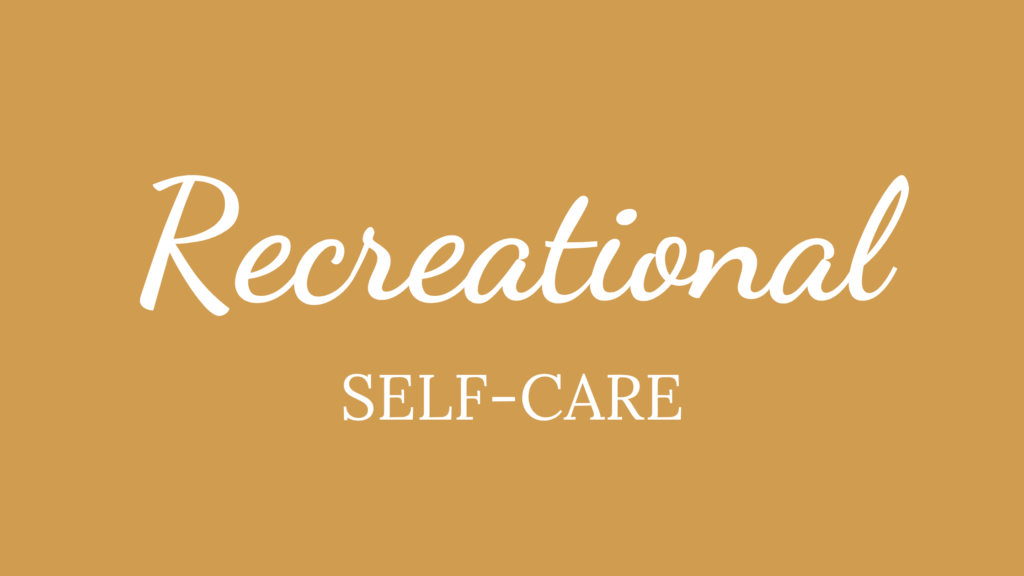
Recreational Self-Care Ideas | For Cultivating Playfulness and Fun
91. Schedule something small to look forward to EVERY day.
92. Create a menu of activities you might want to do over the next three months (with your baby, with your partner, with friends, alone) to have a list prepped for those days that you have the energy/desire to leave the house.
93. Revisit a favorite game, sport, or activity you loved as a kid.
94. Sign up for a “parent and me” class or group to meet other parents while having a new experience with your baby.
95. Trade weekly or monthly babysitting with trusted friends or family so that you can have adult-only outings (even if only for an hour at a time!).
96. Find a creative hobby (knitting, cross-stitching, watercoloring, etc.) that you can do before bed or during naptime.
97. Intentionally seek out laughter (like watching stand-up comedy or — if you’re feeling adventurous — laughing yoga).
98. Try out a new routine.
99. Gamify daily tasks.
100. Give yourself permission to be “unproductive” and do something just because you enjoy it.
And lastly…
101. Remind yourself that self-care doesn’t have to be stressful — do what you can when you can, in ways that feel right for you.
Sometimes self-care looks like reaching out for support.
Truth? Self-care as a new parent is SO important. AND. You may find yourself struggling with the motivation to keep up with your self-care. Or, you may feel as though you’re doing ALL the self-care things and still having a hard time. Know you don’t have to figure this out alone. As a perinatal therapist, I’m here to help you work through those stuck places you find yourself in during your transition to parenthood. If you’re curious about therapy during pregnancy, the postpartum year, or work after baby, reach out for a free virtual consultation. We can chat about how we can work together to get you unstuck and design a life you love.